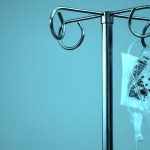Mental Health Treatments

At any given time, approximately 26% of Americans struggle with some degree of a mental illness. Mental disorders can range in severity and manifestation, ranging from depression to bipolar disorder and anxiety. Furthermore, of these numbers, many people also suffer from additional comorbidities. That is, they may be dealing with more than one disorder at a time, further compounding their issues.
Living with mental illness can be incredibly challenging. Not only must you contend with your disorder on a daily basis, but you still also need to navigate the modern world with your burdens in tow. And while there are a lot of similarities between these disorders, they can vary dramatically from person to person. Fortunately, there is one thing that nearly all of these mental illnesses have in common: they are also largely treatable. And when it comes to anxiety treatment, San Diego is an ideal place to be to get the proper care you deserve.
Your Mental Health Treatment Options
Despite the stigma surrounding it, a mental illness is just that — an illness that happens to exist in the brain. In the past, patients who suffered from a mental disorder oftentimes had little means for recovery, or the mental health treatment options were dangerous and chancy at best.
Today, mental health treatment has improved dramatically, and now a wide variety of treatment options exist. From talk therapy to prescription medication, attaining lasting treatment for mental illnesses no longer needs to be an insurmountable obstacle. Lasting recovery can finally be attainable for the millions of people who do suffer from mental health concerns.
What is Mental Health?
Your mental health is a complex relationship between your psychological, social, and emotional well-being. Together, it plays a major role in everything that you do, from the decisions you make to the way you communicate and interact with your peers. Good mental health is vital to help you make the right choices for yourself, but poor mental health can dramatically impact your quality of life.
Many people may develop mental health problems throughout their life, but that doesn’t automatically mean that they can be diagnosed with a mental illness. Numerous things can affect your mental health, such as your genetics, milestone life events, and trauma. No matter what type of mental health problems you may have, though, there can be a mental health treatment option available to you.
How to Improve Mental Health
Despite popular belief, improving your mental health is far more complex than simply trying to will away your mental illness. Empty advice and platitudes can actually do more harm than good. Instead, if you find yourself struggling with poor mental health, there are quite a few things you can employ to help improve it. Whichever mental health treatment method you choose, however, is ultimately uniquely personal to you and your mental health treatment plan goals and objectives.
Psychotherapy
Psychotherapy (also known as “talk therapy”) has a proven track record of being highly effective, with up to 75% of people reporting that it was beneficial to them. In this treatment method, you’ll meet with a therapist to talk through your problems and discuss the various things that are negatively affecting your life. In turn, they’ll listen carefully to you and provide tailored feedback to you.
During your sessions with your therapist, you may broach an assortment of topics. These can include personal loss, illness, or your mental illness itself. You may also meet with them either alone or in a group session. Treatment can range from just a few months to several years, and your therapist will work with you to help you untangle and better understand your complex feelings.
Medication
Many people can be reluctant to start medication for their mental health issues, citing uncertainty about side effects or expressing fears that it could change their personalities. However, medication has also been shown to be quite effective, allowing many people to regain their mental health.
It’s important to note that medications are not considered a cure; instead, they’re designed to address the symptoms of your mental illness. You do need to stay on them for them to work properly. They also often work better in conjunction with another mental health treatment plan and require time in order to be effective. For more information, speak to a psychiatrist.
Case Management
It’s quite normal to feel overwhelmed with your mental health treatment options, especially when you’re first starting to seek out treatment. For patients who may be unsure how to go about attaining mental health treatment, a case manager can be incredibly beneficial. They can act on your behalf to help coordinate services for you, allowing you to have access to whichever treatment plan is best for you.
Peer Support
Sometimes one of the most helpful things for a person who is struggling with mental illness is knowing that they are not alone. In peer support treatment, you’ll be introduced to someone who has experienced similar mental health problems. They can help guide you and share coping skills with you. While they may not have the same level of education as other mental health professionals, they can still lend a compassionate and empathetic ear during your recovery, which can be incredibly valuable.
Support Group
Similar to peer support, support groups also rely upon shared experience to help promote recovery from mental illness. They can either be peer-led (by those who have undergone mental health struggles) or they can be led by mental health professionals. Support groups are a safe space for people who feel comfortable sharing their private struggles with an intimate number of similarly-minded peers.
Eye Movement Desensitization
Created in 1987, Eye Movement Desensitization and Reprocessing (EMDR) therapy is a novel type of brain therapy and has been shown to be incredibly beneficial in treating PTSD. The principles of EMDR include challenging you to face the uncomfortable memory directly while also moving your eyes back and forth. By doing so, the intensity of the painful memory can be dramatically reduced. In time, desensitization can be achieved, and you can finally experience relief from the trauma which led to the PTSD.
Alternative Medicine
There’s considerable negative stigma and controversy surrounding alternative medicine. Nevertheless, there is also quite a bit of research that supports the benefits of certain types of alternative mental health treatments (such as exercise, supplements, and CBD products), even though they may not be directly endorsed by mental health professionals. It’s essential that you always disclose any alternative treatments that you might be using to your doctor, as they are not always without risks.
Hospitalization
While hospitalization may seem like an extreme mental health treatment method, for some people, it may occasionally be necessary. It is often used when you are considered at risk of harming yourself or others. There are a variety of levels of mental health treatment centers, ranging from residential care (where you stay at the facility around the clock) and partial hospitalization. Both private and public facilities also exist, providing both acute and long-term care.
Self Help Plan
A self-help plan is quite different from other mental health treatment methods, as it gives you a significant amount of autonomy in your recovery. It is ideal for those of you who want to avoid mental health treatment centers and instead want to address your mental health problems on your own. In this treatment, you’ll implement strategies to help you recover. This can include documenting various things, such as:
- Which medications you took
- Any exercise or activities you did
- Your diet and nutrition
- The quality and duration of your sleep
No two self-help plans will look identical, but they can go a long way in helping you restore both your agency and mental health when healing from your mental illness.
TMS Treatment
While lesser known than other mental health treatment methods, transcranial magnetic stimulation (TMS) has been shown to be highly effective in treating treatment-resistant depression. For those who may be wondering what is TMS for depression and how it works, TMS utilizes magnetic fields to stimulate the nerves in your brain. Each session generally lasts less than twenty minutes, and this non-invasive brain stimulation therapy is regarded as safe, effective, and well-tolerated.
The principle of TMS involves the generation of a magnetic field by a coil placed on the patient’s scalp, which then induces an electrical current in the underlying brain regions. It specifically targets the prefrontal cortex, an area of the brain that is often underactive in those suffering from depression. By sending repeated magnetic pulses to this area, TMS can normalize activity and enhance neural connections, potentially alleviating depressive symptoms. The treatment does not require sedation or anesthesia and is typically administered on an outpatient basis, making it a convenient and accessible option for many. You can find the treatment in San Diego County, such as at Thrive Medical Specialists, a team of integrated mental health professionals that offers TMS in Oceanside.
Lasting Recovery is Possible
One of the biggest tragedies of poor mental health is the stigma surrounding it. With so many people struggling in private with mental illness, the need for viable mental health treatment options is greater than ever. Despite the negative perception of mental disorders, it’s important to remember that an illness in the brain is no more shameful than an illness in the lungs or any other part of your body. So whether you are a veteran, mother, businessperson, or a senior citizen – no matter your background, you deserve to the best mental health treatment possible for your wellbeing.
In addition, it’s imperative to remember that brain health is closely linked with mental health, and certain neurological disorders can easily manifest as mental health disorders. By educating yourself about these various mental health treatment plan examples — as well as the other treatment options available to you, such as the highly effective Apollo Health Bredesen Protocol — you can empower yourself to reach full recovery from your mental illness. In turn, you can stay healthy and happy, free from mental illness and living your best possible life here in beautiful La Jolla.
About the author: When Karyl Trejo isn’t writing articles about health and fitness, you can find her hanging out with her husband and two cats on the beautiful Central Coast of California, chipping away at her next science fiction novel. If you want to hit her up for her favorite chocolate chip cookie recipe or swap running tips with her, you can find her LinkedIn here.







